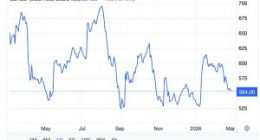Here in Vancouver, B.C., we have an amusement park called Playland, where one of the main attractions is a rickety roller coaster that’s been in operation for more than 100 years. Thanks to the wooden construction, no matter how prepared you think you are for the dips and dives ahead, the ride delivers a different experience each and every time you board.
The wood industry is a lot like that wooden coaster. Those wobbles, bumps and quick turns that jostle the cars as they careen around the track remind me of some the obstacles we’ve had to navigate around since the public health crisis began: pricing, interruptions in production, staffing and transportation problems, weather, politics, customer and end-customer needs. And just when you thought you knew what the impact was going to be, it was no different than riding that coaster, which might jerk unexpectedly on a section of track where it didn’t before.
As an essential service, however, we don’t buckle under pressure and we don’t shy from challenges: we adapt and move forward.
Part of the reason we’re equipped to do that is because, well, we’re used to it. The pandemic added a new layer of complexity, but the industry has always faced temporary snags in the form of seasonal challenges, weather-related disruptions or economic fluctuations, to name a few. While we usually deal with these factors one at a time across different years, it seems like the pandemic dialed up all of them at the same time! We know how to respond when these events happen independently, and now we’re learning how to treat them when they happen in different combinations.
The level of interruption has been unprecedented but so, too, has the level of adaptability that sprang out of that: technology and innovation, new business models, stronger partnerships. When it’s all said and done, the pandemic wasn’t able to derail the industry. Instead, we’re stronger than we were a couple of years ago, and way more versatile.
Forward Momentum
That being said, where do we go from here? As always, the industry moves based on what the consumer needs. I’ve noticed three trends in particular emerging from the pandemic that I believe have implications for wood products going forward.
Customers, meanwhile, are reflecting on what’s important to them. Turns out, that’s value and quality. It’s not about the cheapest price, but rather the best product.
Of these potential emerging opportunities that are on the horizon, all are important; but what’s most exciting to me personally is the growing conscious that people, the industry, the world are bringing to their everyday use of things. What’s more ‘every day’ than where you live? I think that’s one of the major reasons wood is going to remain so relevant for the long term.
There’s a lot of buzz right now, for instance, about mass timber structures. I would love to see every major city in the world backpedal from 80-story concrete and steel towers in favor of these wood-based high rises. There’s a huge place for them in residential living, and projects already in place—an 18-story building at the University of British Columbia, for example—prove that we can do it. As major architectural firms realize the benefits of building with mass timber, regulations loosen up, and people become more aware, I think it’s a realistic and achievable dream.
Getting Back in Line
Until we get there, there are likely to be additional lurches, wobbles and jumps—just like on our trusty wooden roller coaster. But sitting there tense and clenched up, trying to anticipate every twist and turn, is only going to give you whiplash! Instead, let the ride take you where it’s going to take you, and figure out where to go from there when you disembark. Keep that in mind as the coaster pulls back into the station and prepares for the next lap around the track—which will inevitably feel different from the last.
But, please, do wear your safety belt and keep your hands inside the ride at all times.
– Gavy Gosal is a sales representative at Western Forest Products, Vancouver, B.C. (www.westernforest.com).
Milwaukee Tool’s new M18 FUEL Belt Sander offers professional carpenters and remodelers the most powerful, and versatile cordless belt sander to assist in the jobsite material removal process.
“scared money doesn’t …
Vancouver, B.C.-based Metrie, North America’s largest manufacturer and distributor of millwork and interior trim, has purchased two-step millwork distributor Tinder Wholesale, Manassas, Va.
Milwaukee Tool’s new M18 FUEL Belt Sander offers professional carpenters and remodelers the most powerful, and versatile cordless belt sander to assist in the jobsite material removal process.
“scared money doesn’t win” is an old gambling saying that means you have to play to win and you can’t win big unless you bet …
Vancouver, B.C.-based Metrie, North America’s largest manufacturer and distributor of millwork and interior trim, has purchased two-step millwork distributor Tinder Wholesale, Manassas, Va.
Your industry leading lumber and building materials resource – since 1922.
